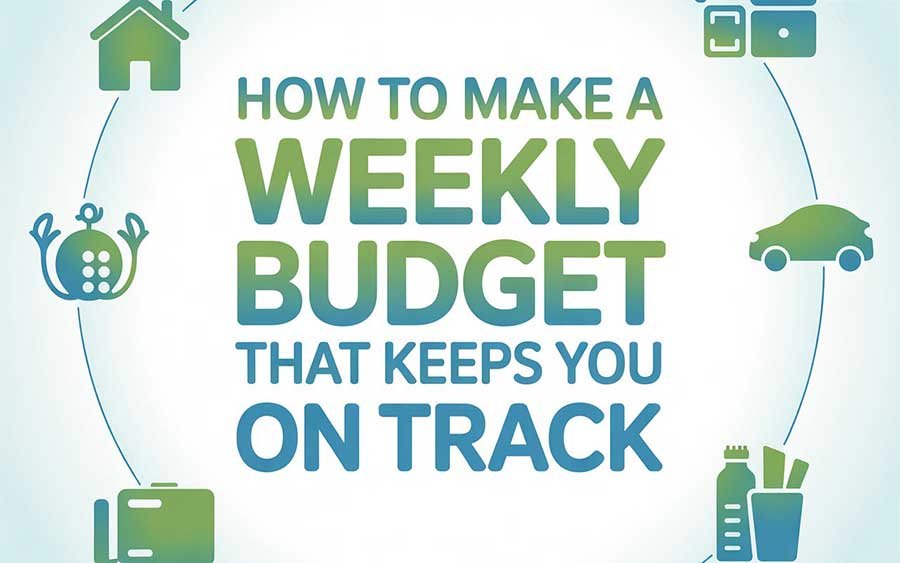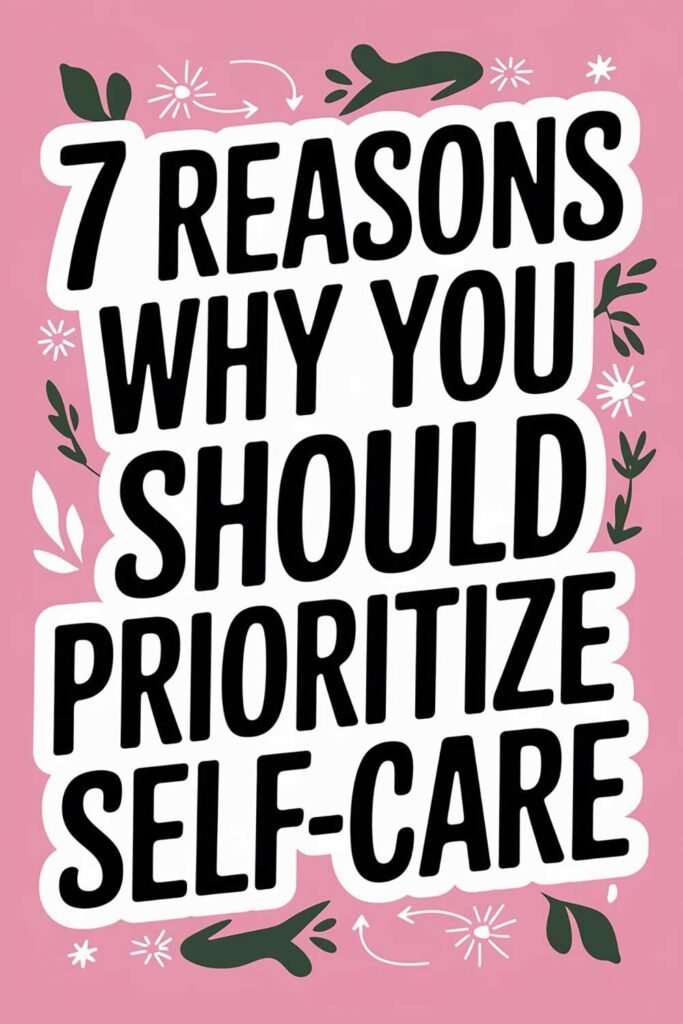
The Weekly Money Master: How to Make a Weekly Budget That Keeps You On Track (And Crushes Your Financial Goals)
Do you ever find yourself confidently starting the month with a budget in hand, only to feel completely derailed by week two? The initial enthusiasm for financial planning often evaporates when faced with unexpected expenses, impulse buys, or the sheer difficulty of sticking to a rigid monthly plan. For many, a monthly budget feels like trying to navigate a ship across an ocean by only checking the map once every 30 days. It’s easy to get off course, drift into uncharted financial waters, and by the end of the month, wonder where all your hard-earned money disappeared to.

I know this feeling all too well. For years, I approached budgeting with a grand, sweeping monthly plan. It looked beautiful on paper, but in practice, it crumbled by the second week. A spontaneous coffee run here, an unexpected car repair there, and suddenly my meticulously planned categories were busted. I’d feel defeated, frustrated, and the entire budgeting process would fall apart, leaving me stressed and constantly playing catch-up. The sheer length of the monthly cycle made it difficult to see immediate consequences and adjust.
But here’s the powerful truth I discovered: while a monthly budget sets your overall direction, a weekly budget is your tactical, precision GPS. It’s the micro-strategy that brings immense clarity, accountability, and real-time control to your spending. It transforms abstract financial goals into manageable, daily habits. It allows you to quickly course-correct, celebrate small wins more frequently, and build unstoppable momentum towards your financial aspirations. It’s like breaking down a marathon into a series of achievable sprints.
This comprehensive guide is designed to be your ultimate blueprint for creating a weekly budget that doesn’t just sit there but actively works for you. We’ll demystify the process, provide a step-by-step roadmap, share powerful insights, and offer real-life examples of how this approach has transformed ordinary people into confident money managers. Get ready to stop the financial guesswork, eliminate mid-month panic, and consistently stay on track with your money, week after week.
Why a Weekly Budget is Your Secret Weapon for Financial Success
While monthly budgeting provides the overarching framework, breaking it down weekly offers unique and powerful advantages that foster greater control and consistency:
- Increased Accountability & Awareness: A shorter timeframe forces you to be more mindful of your spending habits on a daily and weekly basis. You can see the immediate impact of your choices.
- Faster Course Correction: If you overspend in one category on Monday, you can adjust your spending for the rest of the week to stay on track. This agility is lost in a monthly review.
- Reduces Overwhelm: A $2,000 monthly grocery budget can feel daunting. A $500 weekly grocery budget feels much more manageable and actionable.
- Builds Stronger Habits: Consistent weekly check-ins and adjustments reinforce positive spending habits more quickly than monthly reviews.
- Fewer Surprises: By regularly monitoring your spending, unexpected shortfalls become less likely.
- Boosts Motivation: Celebrating small wins each week (hitting your targets!) provides regular bursts of motivation, keeping you engaged and excited about your financial journey.
- Ideal for Variable Income: If your income fluctuates (common for freelancers or those with irregular paychecks), a weekly budget offers the flexibility to adapt more dynamically. This also helps if you’re trying to figure out how to create a budget as a couple without fighting and one or both of you have variable income.
A weekly budget is not just a tool; it’s a discipline that translates your long-term financial vision into actionable, everyday steps.
Your Step-by-Step Blueprint to Creating a Weekly Budget That Works
This process is designed to be practical, flexible, and sustainable. Grab your bank statements, a notebook, or open a spreadsheet – let’s get your money on track!
Phase 1: The Foundation (Monthly Overview & Transition)
Before diving into weekly numbers, you need a solid understanding of your overall monthly financial landscape.
1. Calculate Your Total Monthly Net Income (Your Starting Line)
- The Habit: Gather all your income sources (paychecks after taxes, freelance payments, side hustle earnings, benefits, etc.) for the entire month. Focus on your net (take-home) income. If your income varies, use a conservative estimate (e.g., your lowest monthly income from the past three months) or average it out.
- Why it Matters: You can’t budget effectively if you don’t know exactly how much money you have available to work with. This provides your total resource pool.
- Real-Life Example: Sarah and Tom, a couple balancing two incomes, sat down to calculate their combined net monthly income. Sarah earned $3,200 and Tom earned $2,800. They also had a small, consistent $150 from a shared online project. Their total monthly income was a clear $6,150. This concrete number was their first step towards financial peace.
2. List All Monthly Fixed Expenses (The Non-Negotiables)
- The Habit: Identify all expenses that are the same amount each month and are difficult to change quickly. This includes:
- Rent/Mortgage
- Loan Payments (car, student, personal loans)
- Insurance Premiums (health, auto, home, life)
- Fixed Subscriptions (Netflix, gym, software, internet – the basic plan)
- Childcare (if a consistent monthly fee)
- Why it Matters: These are your non-negotiables. Subtracting them first shows you how much is left for everything else, making the variable budget clearer.
- Real-Life Example: The Chen family meticulously listed their fixed expenses: $2,000 for mortgage, $350 for car payment, $200 for student loans, $150 for insurance, $100 for internet/streaming. Total fixed: $2,800. This left them with $3,350 ($6,150 – $2,800) to allocate for everything else for the month.
3. Categorize & Estimate Monthly Variable Expenses (The Flexible Zones)
- The Habit: List all your expenses that fluctuate from month to month. This is where most overspending occurs if not managed. Common categories include:
- Groceries (A huge one! Consider The Ultimate Guide to Grocery Budgeting for Beginners for deep dives here.)
- Dining Out/Takeout
- Utilities (electricity, gas, water – these can vary seasonally)
- Transportation (gas, public transit, ride-shares)
- Personal Care (toiletries, haircuts)
- Entertainment/Fun Money
- Clothing
- Household Supplies
- Miscellaneous/Buffer
- Why it Matters: This is where you gain control. Look at your past 2-3 months of bank/credit card statements to get an honest average for each category. Then, decide if that average is what you want to spend, or if you need to reduce it to meet goals.
- Real-Life Example: The Chen family reviewed their past spending and estimated: Groceries $800, Dining Out $300, Utilities $250, Transportation $150, Personal Care $100, Entertainment $200, Miscellaneous $50. Total variable: $1,850.
4. Prioritize Savings & Debt Repayment (Paying Your Future Self First)
- The Habit: Before you finalize spending, allocate money towards your financial goals. This is non-negotiable in an effective budget.
- Emergency Fund: Aim for 3-6 months of living expenses.
- Debt Repayment: Extra payments beyond minimums (e.g., student loans, credit cards).
- Investment/Retirement: Contributions to 401(k), IRA, brokerage accounts.
- Specific Savings Goals: Down payment, vacation, new car, education.
- Why it Matters: This is the core principle of intentional spending. You’re proactively directing money towards your future, rather than hoping there’s something left over.
- Real-Life Example: After accounting for fixed and variable expenses, the Chens had $1,500 left ($3,350 – $1,850). They decided to allocate $1,000 to their emergency fund and $500 to accelerating their car loan. This left them with $0 for the month ($1,500 remaining – $1,000 savings – $500 debt payment = $0). They created a zero-based budget, ensuring every dollar had a job. For a deep dive into this method, check out Step-by-Step Guide to Creating a Zero-Based Budget or How Zero-Based Budgeting Works and Why It’s So Effective.
Phase 2: The Weekly Rollout (Your Tactical Control)
Now, transform your monthly plan into actionable weekly segments. This is where the magic of the weekly budget truly shines.
5. Divide Variable Expenses into Weekly Allowances
- The Habit: Take your monthly variable expense categories (Groceries, Dining Out, Entertainment, etc.) and divide them by 4 (or 4.33 if you want to be super precise for weeks in a month). This gives you your weekly spending allowance for each category.
- Why it Matters: This breaks down overwhelming monthly numbers into manageable, immediate targets. It provides a clear spending limit for the next 7 days.
- Real-Life Example: The Chens’ $800 monthly grocery budget became $200 for the week. Their $300 dining out became roughly $75 per week. This felt much more tangible. “It’s easier to say, ‘Okay, I have $200 for groceries this week’ than to constantly think about an $800 monthly limit,” Sarah noted. “It makes the choices simpler.” This method is especially helpful if you’re trying to manage How to Meal Plan on a Tight Budget – Step-by-Step or specifically How to Create a Weekly Grocery Budget That Actually Works.
6. Schedule Your Weekly Check-in (Your Accountability Ritual)
- The Habit: Choose a specific day and time each week (e.g., Sunday evening or Monday morning) to sit down for 15-30 minutes. This is your dedicated “Money Check-in.”
- Why it Matters: Consistency is key. A scheduled check-in ensures you don’t fall off track. It’s your built-in accountability system.
- Real-Life Example: Michael and Lisa, a busy couple, scheduled their “Money Monday” for 7 PM. They’d grab a cup of tea, open their budgeting app, and review the past week’s spending. This ritual became non-negotiable.
7. Track Spending Daily (Real-Time Awareness)
- The Habit: Throughout the week, track every single expense immediately. Use a budgeting app that links to your bank, a simple spreadsheet on your phone, or a small notebook you carry. As you spend, categorize it and deduct it from your weekly allowance for that category.
- Why it Matters: Real-time tracking gives you immediate feedback. You see if you’re overspending before it’s too late to adjust.
- Real-Life Example: Lisa started logging every coffee purchase and lunch out immediately in her budgeting app. “If I spent $20 on a lunch that week, I’d see my dining out budget drop from $75 to $55 instantly,” she explained. “That immediate feedback loop stopped me from mindless spending. I’d think, ‘Do I really want this coffee, or do I want to have enough for dinner out with friends later this week?'”
8. Adjust & Course Correct (The Power of Flexibility)
- The Habit: During your weekly check-in, compare your actual spending to your weekly allowances.
- Overspent in a category? Don’t despair! Reallocate from another variable category (e.g., take money from “entertainment” to cover an “unexpected” grocery bill), or consciously decide to spend less in that category for the rest of the week/month.
- Underspent? Great! You can roll that money over to the next week’s allowance in that category, or allocate it to a savings goal or debt payment.
- Why it Matters: This is the beauty of the weekly budget. You can make small, nimble adjustments before a small overspend turns into a monthly disaster. It allows for forgiveness and learning, not failure.
- Real-Life Example: One week, Michael and Lisa had an unexpected medical co-pay that ate into their “miscellaneous” budget. Instead of giving up, during their “Money Monday,” they decided to cut their dining out budget for the next week and found a few free entertainment options. “It felt like a team effort to fix it,” Michael said. “The weekly check-in made it manageable; a monthly check-in would have just left us feeling like failures.”
Phase 3: The Long-Term Reinforcement (Sustained Success)
Maintaining discipline requires more than just weekly tracking; it needs consistent reinforcement and a forward-looking perspective.
9. Plan Your Meals for the Week (Strategic Grocery Savings)
- The Habit: Integrate meal planning into your weekly budget routine. Before you go grocery shopping, plan all your meals for the week, focusing on using ingredients you already have and what’s on sale. Then, create a precise grocery list.
- Why it Matters: Food is often the largest variable expense. Strategic meal planning is one of the most effective ways to stay within your weekly grocery budget and significantly reduce food waste.
- Real-Life Example: The Chen family implemented weekly meal planning directly after their Sunday budget review. “Knowing exactly what we were going to eat for every meal, and having a list of ingredients we needed, meant we stopped impulse buying at the store,” Sarah recounted. “It reduced our grocery bill by 20% right away, simply because we were so much more organized. And it meant less stress every evening.”
10. Review & Re-Budget Monthly (The Macro Check-in)
- The Habit: While you’re managing weekly, still schedule a monthly review. Look at the entire month’s income vs. expenses.
- Were your income estimates accurate?
- Did you consistently meet your weekly targets? If not, why?
- Are your long-term financial goals still on track?
- Are there any big upcoming expenses in the next month or two to plan for?
- Why it Matters: This provides the essential big-picture view. It allows you to refine your monthly allocations for the next cycle and ensures your weekly discipline is contributing to your grander financial vision.
- Real-Life Example: Every first of the month, Michael and Lisa would do a more in-depth review. If they’d consistently underspent on groceries due to efficient meal planning, they’d reallocate that surplus to their down payment fund. If a utility bill was unexpectedly high, they’d budget more for it the next month and discuss energy-saving strategies. “The monthly review keeps us aligned with our big goals, and the weekly keeps us on the ground,” Lisa explained.
The Mindset Shift: From Overwhelm to Empowered Control
Budgeting, especially on a weekly basis, transforms your relationship with money. It’s no longer a frustrating obligation but a powerful act of self-care and financial empowerment. It’s about being proactive, not reactive. It’s about building a muscle of intentional spending and consistent accountability. There will be bumps in the road, days you go over, or weeks you feel tempted. But with a weekly budget, you have the agility and the immediate feedback to get back on track, faster and with less guilt. This iterative process builds confidence, reduces stress, and ultimately propels you toward your financial dreams, one well-managed week at a time.
Picture This…
Imagine your week starting with calm financial clarity. You know exactly how much money you have for groceries, for fun, for everything. As you go about your days, every purchase feels intentional, because you’re keenly aware of your budget. You check your spending midway through the week, make a small, quick adjustment, and feel a surge of satisfaction because you’re back on track. By the end of the week, you look at your budget with a proud smile, seeing that you’ve hit your targets, and that money is flowing exactly where you want it to go – towards your bills, your savings, your debt payoff, and your future. The anxiety of “where did it go?” is replaced by the confident knowledge of “this money is working for me.” This isn’t just about managing numbers; it’s about reclaiming your financial power, week by intentional week.
20 Powerful Quotes on Budgeting & Weekly Financial Control
- “A budget is telling your money where to go instead of wondering where it went.” – Dave Ramsey
- “The habit of saving is itself an education; it fosters every virtue, teaches self-denial, cultivates foresight, and so sharpens every faculty.” – T.T. Munger
- “Do not save what is left after spending, but spend what is left after saving.” – Warren Buffett
- “Every dollar you spend is a vote for the kind of world you want to live in.” – Anna Lappe
- “Financial freedom is available to everyone, but only to those who learn about it and work for it.” – Robert Kiyosaki
- “Money, like emotions, is something you must control to keep your life on the right track.” – Natasha Munson
- “Frugality is founded on the most generous of instincts, and is the happy medium between avarice and profusion.” – Charles Caleb Colton
- “It’s not how much money you make, but how much money you keep, how hard it works for you, and how many generations you keep it for.” – Robert Kiyosaki
- “The goal isn’t to make a lot of money; the goal is to live your life on your own terms.” – Chris Reining
- “Every time you save money, you’re buying yourself freedom.” – Unknown
- “The best way to save money is to get out of your head that you have to spend it.” – Catherine Zeta-Jones
- “A budget is a plan for how you’re going to spend and save your money, based on your income and expenses.” – The Balance
- “You must gain control over your money or the lack of it will forever control you.” – Dave Ramsey
- “Small daily improvements over time lead to stunning results.” – Robin Sharma (Applies perfectly to weekly budgeting.)
- “Being frugal is not about cutting out all the things you love. It is about cutting out the things you don’t love so you can afford the things you do.” – Melissa Blevins
- “Empty pockets never held anyone back. Only empty heads and empty hearts can do that.” – Norman Vincent Peale
- “If you don’t know where you are going, any road will get you there.” – Lewis Carroll (Your budget is your map!)
- “The difference between who you are and who you want to be is what you do.” – Unknown (What you do with your budget).
- “Financial planning is not about restricting yourself; it’s about enabling yourself to live the life you want.” – Unknown
- “Consistent action creates consistent results.” – Unknown
Disclaimer
Please note: This article is intended for general informational and educational purposes only and is based on common budgeting principles and anecdotal experiences. Individual financial situations, income levels, expenses, and goals vary significantly. While a weekly budget can be highly effective, its success depends on consistent tracking and discipline. This content is not a substitute for personalized financial advice. Before making any significant financial decisions, it is strongly recommended to consult with a qualified financial advisor who can provide guidance tailored to your specific circumstances.
Share This Article!
Are you ready to stop the money leaks and gain complete control over your finances, week after week? If this guide to creating a powerful weekly budget has inspired you, please share it with friends, family, or on your social media! Let’s empower more people to achieve their financial goals with clarity and confidence.






